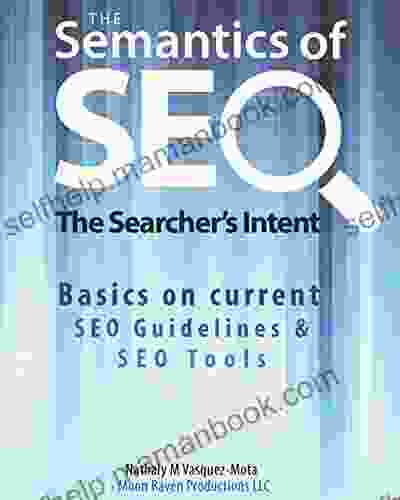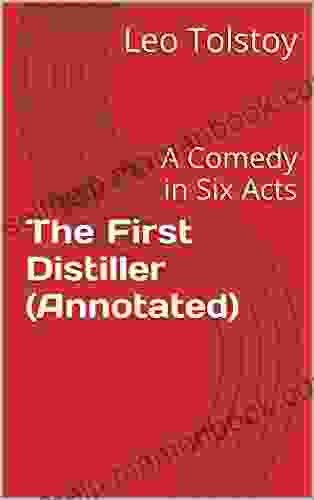The Semantics of SEO: A Comprehensive Guide to Understanding the Language of Search Engines

In the realm of digital marketing, search engine optimization (SEO) reigns supreme as a fundamental strategy for businesses to enhance their online visibility and reach their target audience. However, SEO is not merely a technical checklist; it's an intricate interplay of semantics, algorithms, and user intent.
The semantics of SEO encompasses the hidden meanings, relationships, and patterns within search engine algorithms. By understanding this language, businesses can tailor their content to align with the sophisticated understanding of search engines, resulting in higher rankings and increased traffic.
The advent of machine learning and natural language processing (NLP) has revolutionized SEO. Search engines, particularly Google, now employ advanced algorithms such as BERT and MUM to interpret the semantics of content. These algorithms analyze not just keywords but also the context, relationships, and intent behind user queries.
5 out of 5
| Language | : | English |
| File size | : | 1500 KB |
| Text-to-Speech | : | Enabled |
| Screen Reader | : | Supported |
| Enhanced typesetting | : | Enabled |
| Word Wise | : | Enabled |
| Print length | : | 20 pages |
By incorporating semantics into their SEO strategy, businesses can:
- Improve search engine rankings: Semantic optimization helps content rank higher in search results by aligning it with the search intent of users.
- Enhance user experience: Content that is semantically relevant provides a better user experience, leading to increased engagement and conversions.
- Drive targeted traffic: By understanding the semantics of user queries, businesses can create content that attracts the right audience and drives targeted traffic to their websites.
Machine learning and NLP play a pivotal role in the semantics of SEO. Machine learning algorithms, such as BERT, analyze vast amounts of text data to identify patterns and extract meaning. NLP techniques, on the other hand, enable search engines to process and understand human language, including its nuances and ambiguities.
These technologies empower search engines to:
- Comprehend search intent: Algorithms interpret the underlying meaning and intent behind user queries, even if they are expressed in natural language.
- Identify semantic relationships: Search engines recognize connections and relationships between words, concepts, and entities, allowing them to interpret the context of content.
- Provide personalized results: Based on user search history, location, and other factors, search engines tailor results to meet individual needs and preferences.
To optimize content for semantics, businesses should focus on:
- Using natural language: Write content in a conversational tone, avoiding technical jargon and complex sentence structures.
- Creating context-rich content: Provide ample context to help search engines understand the meaning of your content, including relevant keywords, related terms, and examples.
- Incorporating synonyms and variations: Use a diverse vocabulary to express concepts, including synonyms, related words, and variations of keywords.
- Structuring content logically: Use headings, subheadings, and paragraphs to organize content and make it easy to read and understand.
- Including multimedia: Enhance content with relevant images, videos, and infographics to provide additional context and engagement.
Search intent refers to the purpose behind a user's query. Understanding search intent is crucial for semantic optimization. Businesses should analyze user queries to determine what information they are seeking and craft content that directly addresses their needs.
Context relevance is equally important. Search engines consider the context of a user's search, including their location, device, and previous searches. Optimizing content for context relevance helps ensure that it is displayed in the most relevant and personalized search results.
The semantics of SEO will continue to evolve as machine learning and NLP advance. Search engines will become even more sophisticated in their ability to interpret the meaning and intent behind content.
Businesses should embrace these developments and adapt their SEO strategies accordingly. By focusing on creating semantically rich, contextually relevant content, they can stay ahead of the curve and achieve long-term success in the ever-changing landscape of digital marketing.
The semantics of SEO are essential for businesses to understand and leverage in today's competitive online environment. By incorporating semantics into their content, businesses can align themselves with the sophisticated understanding of search engines, improve user experience, and drive targeted traffic. As machine learning and NLP continue to shape the future of SEO, businesses that embrace semantic optimization will be well-positioned to achieve sustainable growth and success in the digital realm.
5 out of 5
| Language | : | English |
| File size | : | 1500 KB |
| Text-to-Speech | : | Enabled |
| Screen Reader | : | Supported |
| Enhanced typesetting | : | Enabled |
| Word Wise | : | Enabled |
| Print length | : | 20 pages |
Do you want to contribute by writing guest posts on this blog?
Please contact us and send us a resume of previous articles that you have written.
 Top Book
Top Book Novel
Novel Fiction
Fiction Nonfiction
Nonfiction Literature
Literature Paperback
Paperback Hardcover
Hardcover E-book
E-book Audiobook
Audiobook Bestseller
Bestseller Classic
Classic Mystery
Mystery Thriller
Thriller Romance
Romance Fantasy
Fantasy Science Fiction
Science Fiction Biography
Biography Memoir
Memoir Autobiography
Autobiography Poetry
Poetry Drama
Drama Historical Fiction
Historical Fiction Self-help
Self-help Young Adult
Young Adult Childrens Books
Childrens Books Graphic Novel
Graphic Novel Anthology
Anthology Series
Series Encyclopedia
Encyclopedia Reference
Reference Guidebook
Guidebook Textbook
Textbook Workbook
Workbook Journal
Journal Diary
Diary Manuscript
Manuscript Folio
Folio Pulp Fiction
Pulp Fiction Short Stories
Short Stories Fairy Tales
Fairy Tales Fables
Fables Mythology
Mythology Philosophy
Philosophy Religion
Religion Spirituality
Spirituality Essays
Essays Critique
Critique Commentary
Commentary Glossary
Glossary Bibliography
Bibliography Index
Index Table of Contents
Table of Contents Preface
Preface Introduction
Introduction Foreword
Foreword Afterword
Afterword Appendices
Appendices Annotations
Annotations Footnotes
Footnotes Epilogue
Epilogue Prologue
Prologue Julie Evans
Julie Evans S T Cartledge
S T Cartledge Robert J Manley
Robert J Manley Karen Anne Golden
Karen Anne Golden Juan De Mena
Juan De Mena Micaiah Johnson
Micaiah Johnson Nekesa Ouma Namulu
Nekesa Ouma Namulu Anthony M Destefano
Anthony M Destefano Dionigi Cristian Lentini
Dionigi Cristian Lentini Malcolm Gladwell
Malcolm Gladwell Arthur Bradley
Arthur Bradley Sal Tiano
Sal Tiano Irving Howe
Irving Howe Naomi Judd
Naomi Judd James W Loewen
James W Loewen Dagmar Mora
Dagmar Mora Julia Heaberlin
Julia Heaberlin Sean Montero
Sean Montero Maurizio Braucci
Maurizio Braucci Mario Escobar
Mario Escobar
Light bulbAdvertise smarter! Our strategic ad space ensures maximum exposure. Reserve your spot today!

 Brennan BlairThunderer Thomas Kydd 24: An Exploration of Naval Warfare in the Age of Sail
Brennan BlairThunderer Thomas Kydd 24: An Exploration of Naval Warfare in the Age of Sail
 Anton FosterThe Slap Happy Five and Dime: A Nostalgic Emporium Bursting with Whimsy and...
Anton FosterThe Slap Happy Five and Dime: A Nostalgic Emporium Bursting with Whimsy and...
 Victor TurnerOn Jack Thayer's Watch: Octave Mirbeau's Portrayal of the French Military and...
Victor TurnerOn Jack Thayer's Watch: Octave Mirbeau's Portrayal of the French Military and... Henry Wadsworth LongfellowFollow ·12.5k
Henry Wadsworth LongfellowFollow ·12.5k Eugene ScottFollow ·7.6k
Eugene ScottFollow ·7.6k Leon FosterFollow ·16.9k
Leon FosterFollow ·16.9k Edgar CoxFollow ·14.2k
Edgar CoxFollow ·14.2k Langston HughesFollow ·14.6k
Langston HughesFollow ·14.6k Clark BellFollow ·8.7k
Clark BellFollow ·8.7k Jeffery BellFollow ·5.2k
Jeffery BellFollow ·5.2k Ralph TurnerFollow ·2.4k
Ralph TurnerFollow ·2.4k

 Boris Pasternak
Boris PasternakThe Misted Mirror: Mindfulness for Schools and...
What is The Misted...

 Holden Bell
Holden BellEmbark on Thrilling Adventures in the Uncharted Depths of...
Unveiling the Enchanting...

 Seth Hayes
Seth HayesDelphi Complete Works of Lucan: Illustrated Delphi...
This meticulously edited...

 Jackson Hayes
Jackson HayesThe Enigmatic Cat Burglar: Unraveling the Intriguing...
In the annals of crime, the name Bernie...

 Quentin Powell
Quentin PowellAligned With The Cisa Review Manual 2024 To Help You...
The CISA Review Manual 2024 is the most...

 Austin Ford
Austin FordUnlocking Revenue Potential: A Comprehensive Business...
In today's digital...
5 out of 5
| Language | : | English |
| File size | : | 1500 KB |
| Text-to-Speech | : | Enabled |
| Screen Reader | : | Supported |
| Enhanced typesetting | : | Enabled |
| Word Wise | : | Enabled |
| Print length | : | 20 pages |






